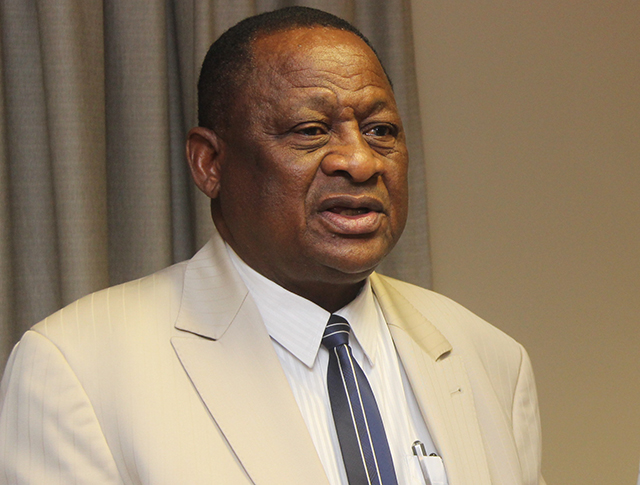HEALTH minister Kalumbi Shangula has welcomed the employment of 16 nurses at Germany’s Dusseldorf’s university hospital.
This comes in light of Germany’s need to fill 60 000 nurses posts through employment agencies, that country’s state-owned media group, Deutsche Welle (DW) recently reported.
The minister said the process of choosing which nurses were to go to Germany was not done through the ministry but was done through individual efforts.
“It will not have any impact on our health services should they [nurses] go. We have more nurses than we can accommodate. It will not have a negative impact. They can go and pick up new skills and get exposure. They will come back and apply that additional knowledge back home,” Shangula told The Namibian on Sunday.
Shangula also expressed concern for the nurses’ safety, saying it would be preferred if a formal process with the government was followed and thus ensure the safety of the nurses.
“We prefer where there is an agreement with the government so it is a formal way of people going there. This is for their protection. We need to know where they are, how they are doing and if they are being treated well,” said Shangula.
Namibia has battled with shortages of nurses in the past, but Shangula said what they are struggling with now at health facilities is shortages of posts that can be filled by nurses.
He also blamed shortages of nurses on people being on leave at times, especially during the December and January holidays.
Namibia Nurses Union’s acting secretary general, Junias Shilunga, on Sunday told The Namibian that the nurses going to Germany is a welcome move because there are no employment opportunities in Namibia.
Shilunga has been at the forefront of demonstrations from unemployed nurses over the past few years demanding the government to recruit dozens of graduates who were sitting at home with their qualifications. Shilunga at the time said that they were frustrated because the country was producing nurses but not recruiting them.
He told to The Namibian yesterday that there were a lot of unemployed nurses, but no opportunities.
“If they [nurses] can get an opportunity elsewhere, we welcome that,” said Shilunga.
He, however, also added fears of safety of the nurses while abroad and called on the government to formalise the process and ensure the safety of the nurses.
One of the 16 nurses who will be working in Germany, Iyaalo Akuunda, a graduate from the University of Namibia, told DW that she hopes to not only gain experience but to also save money and study further.
“I feel it is a good opportunity for my personal development, my career and for the things I want to do in the future. To explore a bit and work in a world-class facility, and gain more professional experience,” said Akuunda.
DW reported that Namibia cannot hire more nurses because there is not enough money to do so.
A German agency selected the 16 nurses and paid for their German course, so as to prepare them to live in the federal republic.
There is no details on whether more nurses would be employed through the agency.
A staff member at Goethe Institute told The Namibian yesterday that the hiring of the 16 nurses was done through a German recruitment agency.
She said the agency approached them and informed them that they would like 16 nurses to be trained, so they can learn a certain level of the German language, which they paid for.
“Since the nurses were taking classes here, their interviews were also conducted here,” said the staff member.
DW recently reported that the 16 nurses were chosen through an agency that is working towards filling in close to 60 000 nursing posts in Germany, where people are either too old to work as nurses or lack interest in working in the field.
Their southern Africa correspondent Adrian Kriesch reported that the nurses will be posted to Germany in April should they pass their language courses at the Goethe Institute Namibia.
So far, he said, 1 000 nurses have been employed from 12 African countries.
Stay informed with The Namibian – your source for credible journalism. Get in-depth reporting and opinions for
only N$85 a month. Invest in journalism, invest in democracy –
Subscribe Now!







